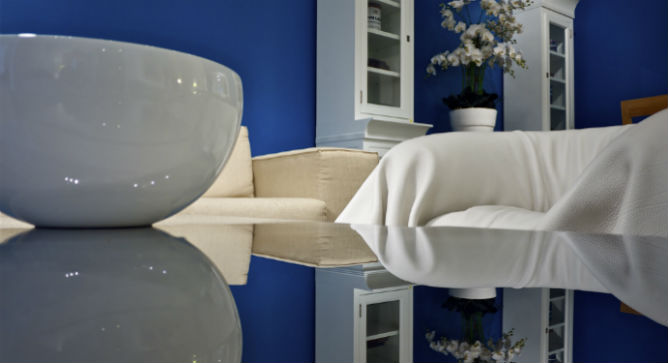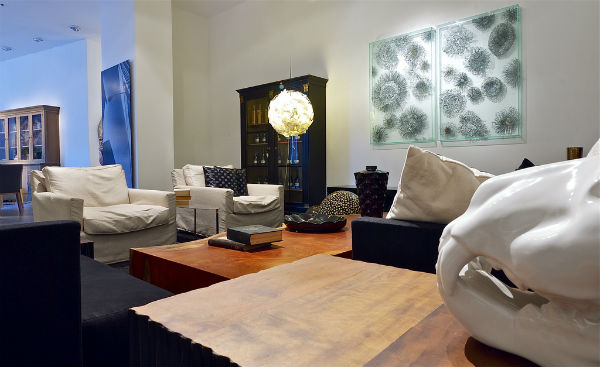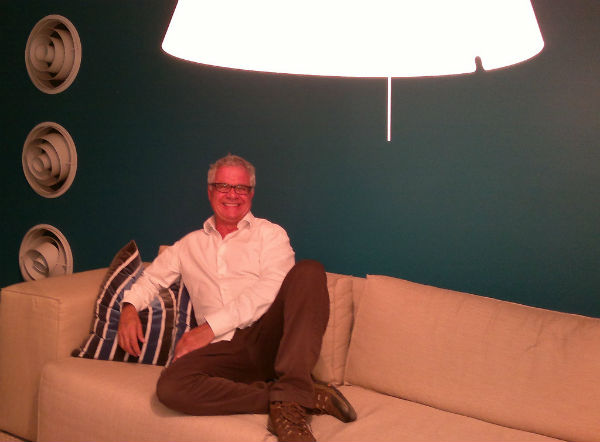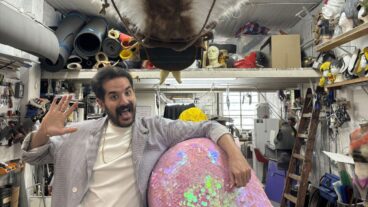Until he was 91, Efraim Kastiel came to work at 7 in the morning and cut upholstery fabrics until 1 o’clock. Casual onlookers might not have realized that Kastiel had established the successful furniture business himself in 1942, when he was only 18.
Before he died less than a year ago, the founder got to see the company’s new factory in Kiryat Gat, where Efraim Kastiel & Sons — “Israel’s preeminent purveyor of fine furniture,” according to Architectural Digest – continues to make pieces designed at its Tel Aviv headquarters for private clients, hotels and VIP apartments and offices.
Spread the Word
• Email this article to friends or colleagues
• Share this article on Facebook or Twitter
• Write about and link to this article on your blog
• Local relevancy? Send this article to your local press
“After the [1946] explosion in the King David Hotel, he refurnished it,” says Moshe Kastiel, who’s been running the company since 1975 with his brother Yehoshua. “He also furnished the first Knesset in Tel Aviv, President Chaim Weizmann’s house in Rehovot, and the homes of David Ben-Gurion, Golda Meir and Moshe Dayan.”
As he walks through the 4,000-square-meter showroom in a former Bauhaus textile factory, Kastiel greets the owner of Tel Aviv’s Hotel Montefiore, who’s browsing through the regularly updated collection of tableware, lighting fixtures, carpets and locally produced artworks accenting display models of Kastiel tables, chairs, sofas, chests and armoires.
“All the stuff you see here is a concept, a raw material,” Kastiel tells ISRAEL21c, pointing out an area filled with 28,000 fabric samples.
“If you choose this chair here, I can make it to your dimensions in any fabric, texture or material. We make everything from scratch.”
However, this summer the company plans to transform one floor of its showroom into Kastiel Basic, a readymade furniture store for clients of more modest means.
Word of mouth
Like any successful enterprise, Kastiel is a testament to hard work, top-notch skills and a bit of luck.
“My father emigrated at 11 from Bulgaria,” explains Moshe Kastiel.
After working 12 hours a day, every weekend he walked from Rosh Ha’ayin to Tel Aviv — the equivalent of a half-hour car trip — to learn by the side of German Bauhaus architects and Templar carpenters.
At the age of 18, Efraim was ready to go into business. The company has never advertised. From the start, word of mouth was enough.
Architects and designers working on Israel’s boutique hotels, luxury office buildings and upscale residences hand Kastiel designers their blueprints for new perspectives on furniture and its placement. Kastiel’s vision is apparent in some of Israel’s newest guest accommodations, including Tel Aviv’s Rothschild and Leonardo Boutique hotels. The company has also worked on more shoestring budgets, for instance at various kibbutzim.
The Kastiel brothers are thoroughly hands-on. “Every morning we work on development,” says Moshe Kastiel. “We can do everything in every department of the factory.”
Not a believer in furniture fashion fads, he prefers classic pieces accented by “a roaring whisper” of contrasts in color, texture, volume and finish – like a tabletop meticulously coated with 17 layers of gold and silver powder and then sealed with Plexiglas.
He points out a polished coffee table fashioned from a vast slice of tree trunk he fell in love with at a raw materials fair in Paris. “I immediately knew what I was going to do with it,” says Kastiel.
Training designers and craftspeople
In a highly globalized furniture market exemplified by IKEA – whose Israeli branches don’t threaten Kastiel’s core business — this is one of few places where graduates of Israel’s design schools can find an outlet for their talents, says Moshe Kastiel.
“IKEA has 70 designers and they sell about $35 billion [annually]. We have between 10 and 14 designers, each with his or her own expression, and we sell nothing by comparison. It’s completely different.”
On its Tel Aviv complex, Kastiel runs a school of interior design and home styling that this year became affiliated with the Technion-Israel Institute of Technology in Haifa.
The new Kiryat Gat Kastiel factory employs 30 people and offers a training program in carpentry and upholstery.
Responsible environmental practices are put in place wherever possible. “As far as we can, our factory is ‘green,’” Moshe Kastiel says. “We try to use only sustainable woods and finishes that don’t poison the environment, whether or not our clients ask for it.”
The majority of these clients are individuals with permanent or holiday homes in Israel. Part-time residents often hire Kastiel to furnish their overseas houses as well.
“After we supply it, we help all our customers arrange the furniture in the room, adjust it and choose accessories. Every piece can be adjusted or changed, even years later. We can refinish, reupholster, extend or shorten.”
Someone recently paid to have a vintage 1951 Kastiel sofa reupholstered for the first time. It would have been cheaper to buy a new one, but “sometimes you want to stay with a piece of furniture because you have a feeling for it,” Kastiel says.


















